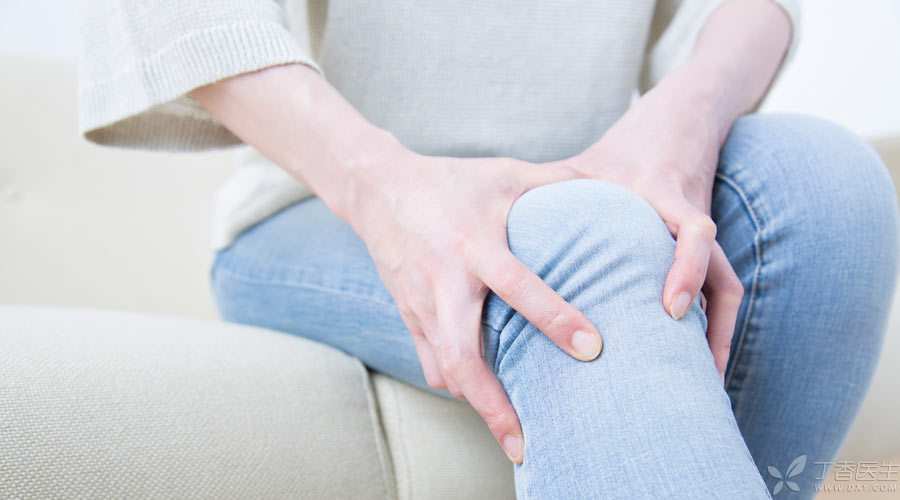
Knee joint is a large joint of the body that bears weight.
The knee joint can be compared to a workhorse in the body. It has worked silently for decades and has achieved great results, but it is often the most vulnerable.
Because long-term stress, heavy physical activity, excessive exercise, wrong exercise, and only the factors of gradual growth of age, will aggravate the wear of knee cartilage, manifested as various knee discomfort, knee pain, and even develop into [knee osteoarthritis].
The following knee symptoms cannot be ignored
Knee discomfort is of many different types. If you don’t pay attention to it, it is often easy to be ignored.
- Dull pain: Persistent [dull pain], Or joint swelling. Severe pain: A sudden [sharp] pain during activity, Appear [soft legs]. More activities will aggravate, Rest will relieve. Paroxysmal pain: It is easy to suffer from paroxysmal pain after catching cold, overwork or slight sprain. Persistent pain: It is only committed once a year or two and becomes more and more frequent, becoming persistent pain. Knee stiffness: long-term stiffness, such as feeling stiff and accompanied by pain when getting up and moving after sitting for several hours; It takes a short period of activity to relieve. Knee joint deformation: It is difficult to squat down, and joint deformation occurs after many years, such as [O-leg].
These symptoms are not fixed, but will change or even worsen according to the specific condition of arthritis.

Losing weight means lightening the burden on your knees.
Some studies have found that in the process of walking, the weight of hip joint, knee joint and ankle joint is 3-5 times of the total weight of the body. Every time the weight exceeds 1 kg, each knee joint will bear 3-5 kg more weight during walking. On the contrary, every time the weight is reduced by 1 kg, each joint will reduce the extra pressure of 3-5 kg.
Obesity, even slight obesity, will affect the endurance of the knee joint and aggravate the existing pain.
Especially for arthritis patients, weight loss will reduce the risk of knee osteoarthritis and also help slow down the development of arthritis.
Friends who have read Mr. Zhu Ziqing’s < < Back > > may have the impression that there is such a description of Mr. Zhu’s faltering gait:
My father was a fat man, so it would take some trouble to walk over. I was going to go, but he refused, so he had to let him go. I saw him hobbling to the side of the railway in a small black cloth hat, a big black cloth jacket and a deep green cloth cotton robe, and leaning down slowly…
As the saying goes, “one’s knees grow old first”. Indeed, as many people approach retirement age, their knees become more and more disappointing. In addition to pain and leg shape changes, the types of daily activities are also greatly limited and the quality of life is greatly reduced.
Therefore, don’t wait until you are old before you begin to pay attention. Take advantage of your youth to lose weight and reduce the burden on your knees.
Does exercise to lose weight aggravate knee injury?
Some friends may wonder: Will the sports meet aggravate the injury to the knee? Doesn’t running ruin your knees?
In fact, don’t worry too much. If the sports are suitable, the amount of exercise is reasonable, the movements are correct, and attention is paid to the protection in advance, the knee will not be damaged as imagined.
We generally suggest that exercise should be started step by step to achieve an ideal daily exercise consumption with the strengthening of physical fitness:
At least 5 days a week, at least 30 minutes of moderate intensity activities should be guaranteed every day.
- You can try to walk fast for 30 minutes to 1 hour every day. The best speed is a little deep breathing, Mild sweating. You can also use a pedometer, wear a smart sports bracelet, Try to accumulate up to or more than 10,000 steps per day. If you are a middle-aged and elderly friend with arthritis, or if you are overweight and obese, you can choose to exercise without pressure on your hip and knee joints. For example, try underwater exercise. Swimming, walking in the swimming pool, jogging and fitness yoga are all good aerobic training methods.

A weight loss diet beneficial to knees
An adult who loses a total of 500 kilocalories a day can lose an average of about one kilogram of weight a week.
The reasonable weight loss rate is: 0.5 ~ 1kg per week, or 1% of the total weight is appropriate; Within six months, lose less than 10% of your weight and maintain it.
Don’t expect a [quick weight loss] plan. Weight loss requires a healthy lifestyle to maintain. The key to successful weight loss is to increase exercise and adjust diet.
Nutrition should be balanced and comprehensive without increasing burden. Pay more attention to high-quality protein, calcium, zinc, potassium, dietary fiber, vitamin C, vitamin D and vitamin B12And vitamin E.
- Three meals, or eat less and eat more, healthy extra meals, but avoid eating high oil and sugar snacks; Eat less refined white rice flour and increase whole grain coarse grains, such as millet, oats, red beans, corn and sweet potatoes. Eat a kilo of vegetables and about half a kilo of fresh fruits every day. Eat a proper amount of livestock meat, poultry meat, eggs and aquatic products every day, almost one or two meat, two or two fish and shrimp, and one egg. When cooking food, pay attention to peeling and degreasing as much as possible. Use steaming, baking, baking or microwave heating to avoid frying, stir-frying and frying. Drinking more water is good for health, can also control appetite and help lose weight.
